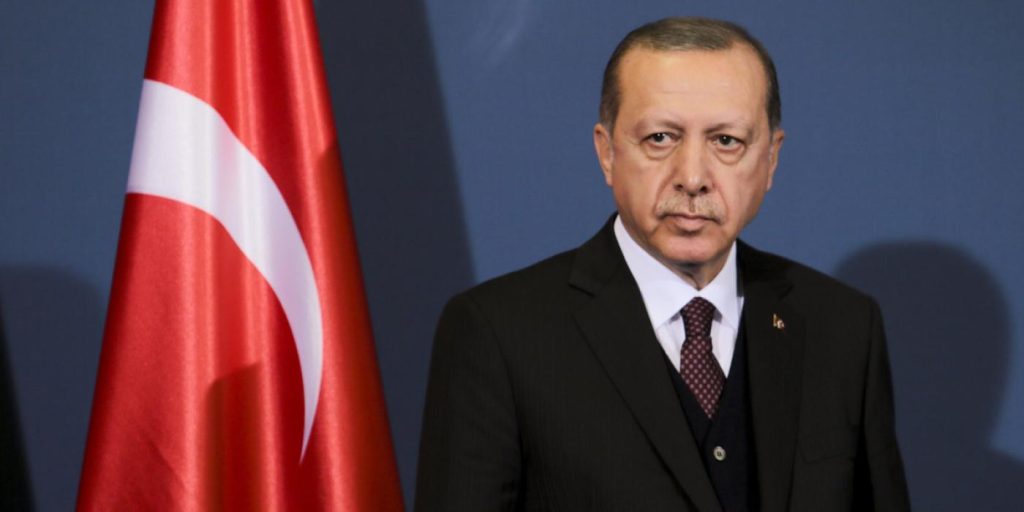Others are reading now
Turkish President Recep Tayyip Erdogan has sparked controversy with his recent comments labeling Israel as a “terrorist state” and defending Hamas as “resistance fighters.”
In a speech to members of his political party, Erdogan condemned Israel’s actions in Gaza, accusing it of implementing a “strategy of total destruction” of the city and its inhabitants.
Erdogan’s remarks came amidst heightened tensions following a massacre in southern Israel on October 7, reportedly perpetrated by Hamas, which resulted in approximately 1,200 civilian deaths.
Erdogan criticized Israel’s subsequent military response against Hamas, a group recognized as a terrorist organization by several countries, including the United States and the European Union.
Also read
The Turkish President announced plans to take measures against Israel’s political and military leaders, aiming to bring them before international courts.
His defense of Hamas, referring to them as individuals “trying to protect their lands and people,” marks a significant stance, diverging from the views of many international entities.
Turkey’s relationship with Israel has seen ups and downs over the years. Before Erdogan’s rise to power, Israel was a long-standing regional ally of Turkey.
However, the relationship soured following an incident in 2010 when Israeli special forces raided the Mavi Marmara ship, part of a flotilla attempting to breach the blockade on Gaza, resulting in the deaths of 10 Turkish activists.
Subsequent years witnessed fluctuating relations, marked by mutual accusations of genocide between Erdogan and Israeli Prime Minister Benjamin Netanyahu.
Though there was a brief improvement, both countries recalled their ambassadors in 2018, indicating strained ties.
Erdogan’s latest statements underscore the ongoing complexities in Turkish-Israeli relations and highlight the divergent perspectives on the Israel-Palestine conflict within the international community.
His comments are likely to further impact the already delicate balance of diplomatic relations in the region.


